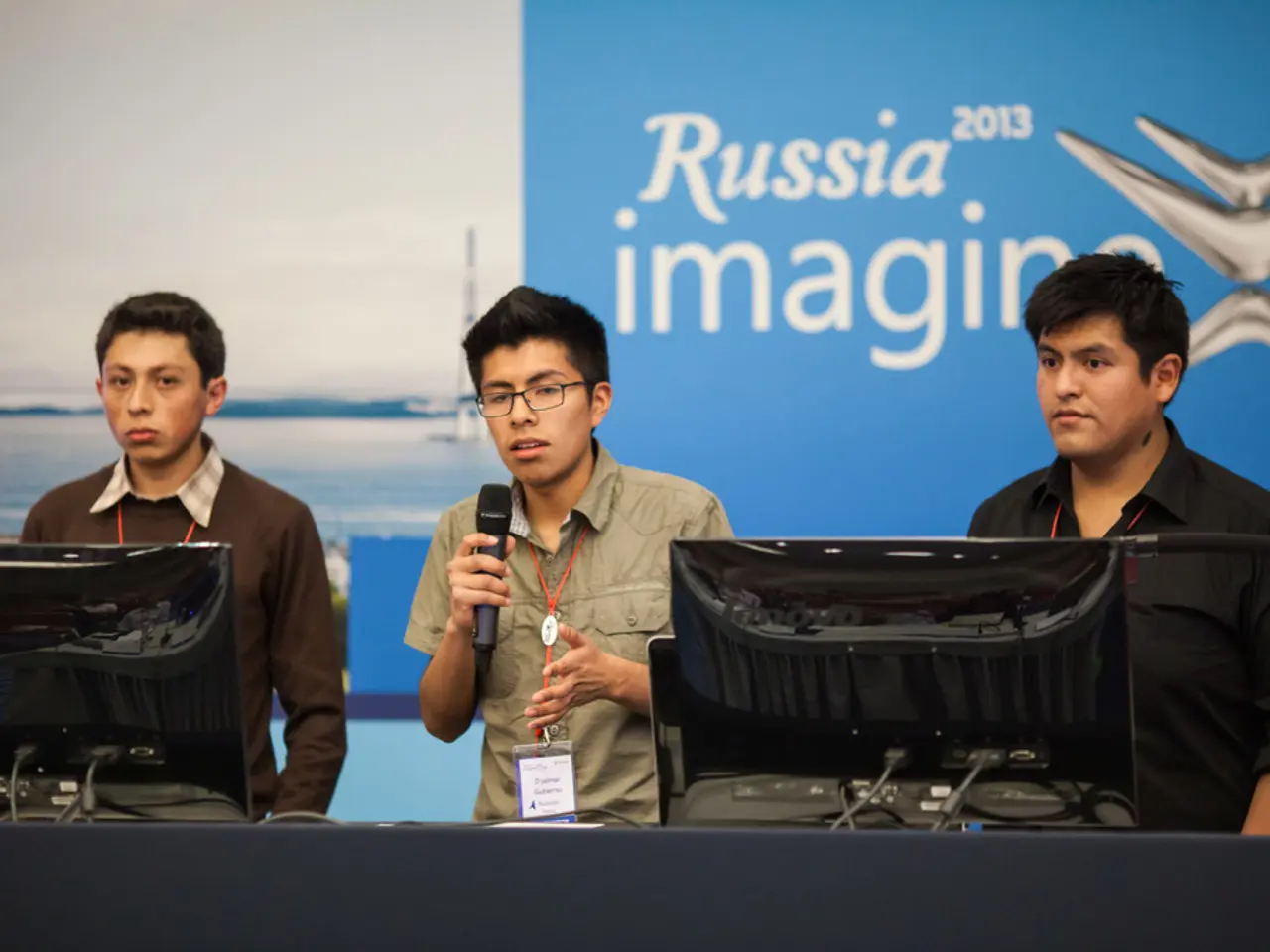Urgent Call from UN Tech Chief: Unified Strategy Essential for AI Regulation Worldwide - Need for a unified global strategy in AI regulation, advocates UN's tech chief
In the rapidly evolving landscape of artificial intelligence (AI), the regulatory approaches of three major players - the United States, China, and the United Nations - reveal striking differences, reflecting their unique priorities and strategies.
The United States, with its focus on innovation and global leadership, has adopted a largely deregulatory stance. On July 23, 2025, the federal government unveiled "America’s AI Action Plan," aiming to clear regulatory barriers, promote investment in AI infrastructure and talent, and assert U.S. dominance in AI markets. This plan encourages deregulation and export controls, prioritizing AI exports to allies while restricting them to competitors, highlighting national security concerns.
In stark contrast, China advocates for a global consensus on AI regulation to prevent AI expertise and technologies from becoming concentrated among a few countries or corporations. Chinese Premier Li Qiang has stressed the importance of balancing AI development with security to avoid an "exclusive game" dominated by a handful of nations. China's position emphasizes establishing an international cooperative framework for AI governance that addresses security risks amid technological rivalry, particularly with the U.S.
While the United Nations does not have an explicit stance, it generally promotes multilateral cooperation and ethical frameworks for emerging technologies. Given China's call for global consensus and the UN's historical interest in human rights and normative governance, it is likely that the UN supports establishing global standards or frameworks to regulate AI development and use in ways that ensure security, equity, and human rights.
The European Union, traditionally emphasizing human-centric, rights-based AI regulation, appears to be shifting towards fostering AI innovation competitively.
The complex and evolving global AI regulatory landscape is a subject of intense discussion, with Doreen Bogdan-Martin, the UN-Technology Chief, stating that coordinated global regulatory measures are crucial given AI's risks. Experts have warned about the dangers of AI technology, including job losses, deepfakes, and misinformation. However, 2.6 billion people worldwide lack internet access, thus limiting their access to AI technologies.
The ITU chief has warned that fragmented approaches to AI regulation will not serve everyone and reach everyone. China, ready to share its advancements in AI with other countries, particularly developing nations, has cautioned against unchecked development of AI. The USA, favoring broad regulatory freedom for companies regarding AI, is involved in discussions on the required level of regulation for AI on a global scale.
In conclusion, the U.S. promotes rapid AI innovation via deregulation, China calls for international cooperation and balanced security-conscious governance, and the UN likely favors multilateral regulation frameworks oriented toward ethics and safety. Without collective efforts, AI could ultimately exacerbate inequalities. The pursuit of a balanced, cooperative, and ethical approach to AI regulation remains a global challenge.
- The European Union, following a tradition of human-centric, rights-based AI regulation, seems to be transitioning towards fostering AI innovation in a competitive manner.
- With the United Nations promoting multilateral cooperation and ethical frameworks for emerging technologies, it's likely that they support establishing global standards or frameworks for AI governance to ensure security, equity, and human rights.
- China, being ready to share its advancements in AI with other countries, particularly developing nations, has cautioned against unchecked development of AI, highlighting the need for international cooperation in AI regulation.




